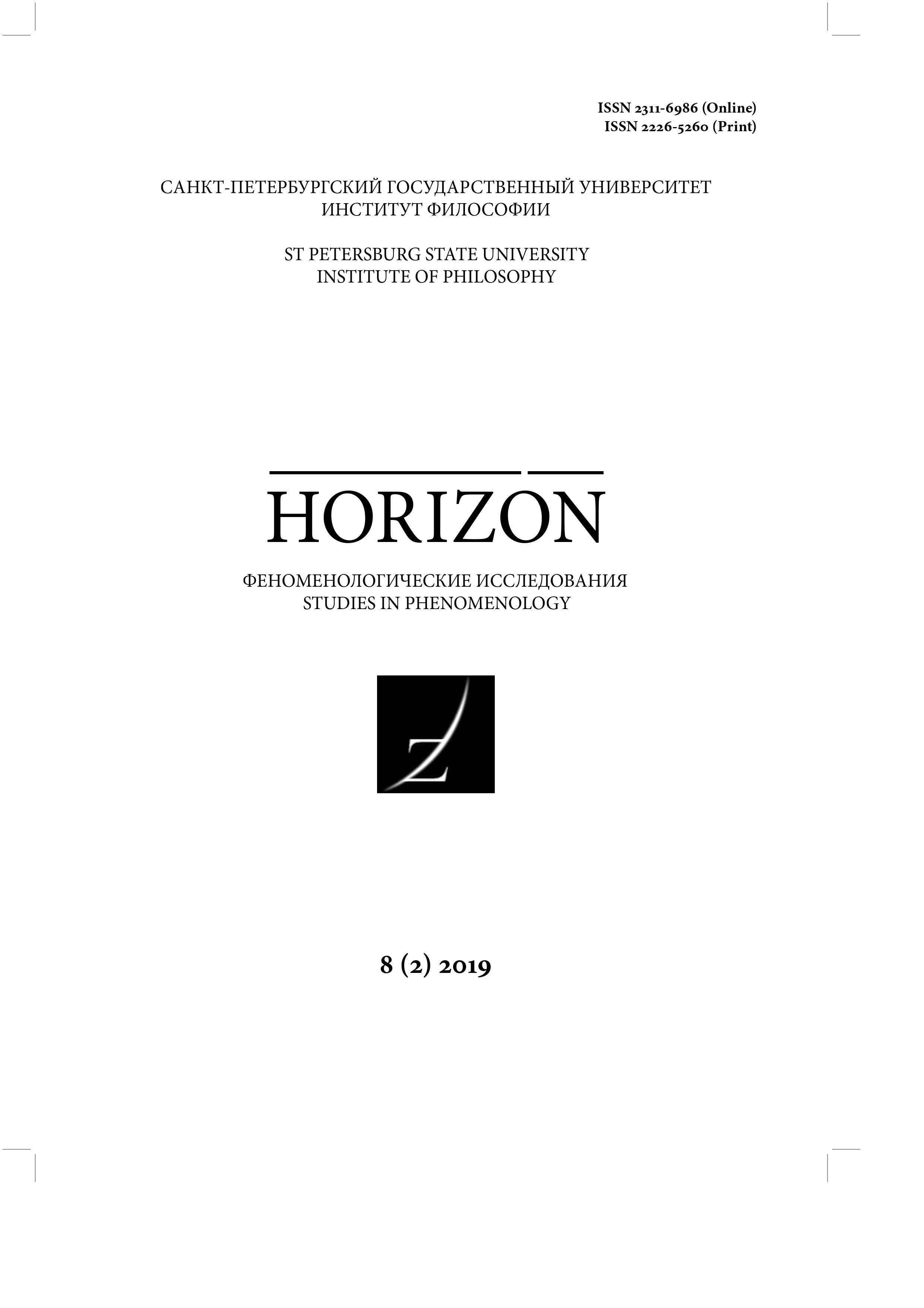О ВНЕШНЕМ И ВНУТРЕННЕМ ОПЫТЕ: ФРАНЦ БРЕНТАНО И МЕЙСТЕР ЭКХАРТ
ON EXTERNAL AND INTERNAL EXPERIENCE: FRANZ BRENTANO AND MEISTER ECKHART
Author(s): Yaroslav SlininSubject(s): Phenomenology
Published by: Издательство Санкт-Петербургского государственного университета
Keywords: Brentano; Eckhart; external experience; internal experience; intention; intentional object; soul powers;
Summary/Abstract: Franz Brentano takes as a premise of his theory that along with an external experience there is an internal experience. The external experience introduces us into the world of things that are transcendental with regard to our consciousness. The internal experience helps us to read the structure of the consciousness itself. While the basis of the external experience is censorial perception, the basis of the internal experience is internal perception. The internal perception shows that the consciousness is a sequence of acts in the flow of our internal time. According to Brentano each act of consciousness is an intention or an orientation towards an object, which can be called an intentional object. Intentions together with their objects are immanent with regard to consciousness. Among the acts of external experience are censorial perception, imagination, contemplation, desire, will, and etc. There is no agreement within philosophers on the issue of the relation between intentional objects of the acts of that type and transcendental things. On this basis, Brentano believes that the data of the external experience acts is not obvious. On the contrary, the data of the internal experience is obvious since the objects of inner perception are the acts of consciousness, and so the inner experience has nothing that is transcendent with regard to consciousness. Brentano points out that scholastic philosophers have already been aware of human consciousness intentional nature. The article investigates the theory of soul powers of Meister Eckhart. According to Eckhart soul powers are, among others, censorial perception, imagination, intellect, and will. The results of their contact with objects that belong to the external, created world are the images of that objects in soul. Hence, soul powers correspond to intentions of external experience acts, and images in soul correspond to the intentional objects of that acts. Furthermore, Eckhart argues that another power intended not towards external, created world, but towards consciousness profundity can be woken up in souls of specially prepared human beings. Eckhart refers to this ‘honorable’ intention as to ‘light’ or ‘spark’ of the soul. This ‘spark’ is fully related to the inner experience and meets God on its own way not in the capacity of an image, but at first hand and in a manifest manner. However, it is important to note that according to Eckhart Holy Trinity is only an intermediate point on the way of ‘honorable’ intention. The intentional object that is at the very end on the way of ‘honorable’ intention is allegorically called by Eckhart the Profundity of Profundity, Silent Desert, and Undivided Silence.
Journal: Horizon. Феноменологические исследования
- Issue Year: 8/2019
- Issue No: 2
- Page Range: 442-459
- Page Count: 18
- Language: Russian

